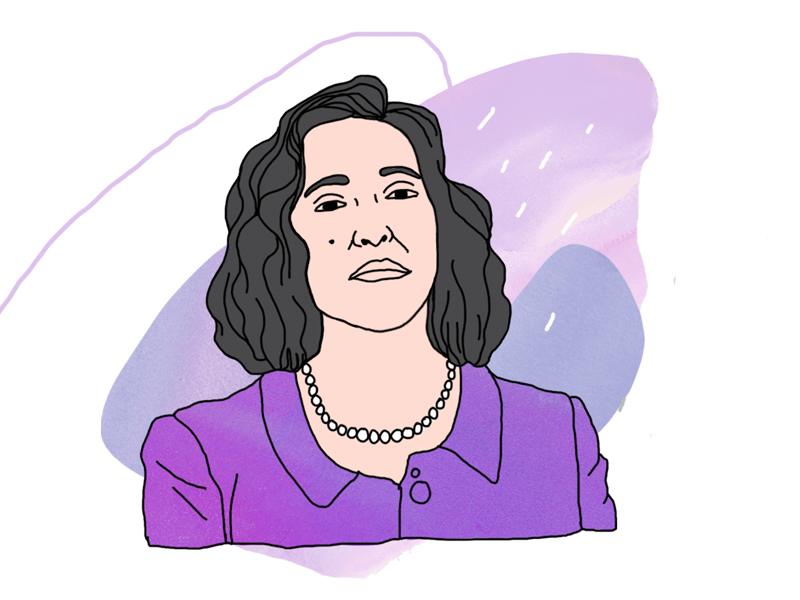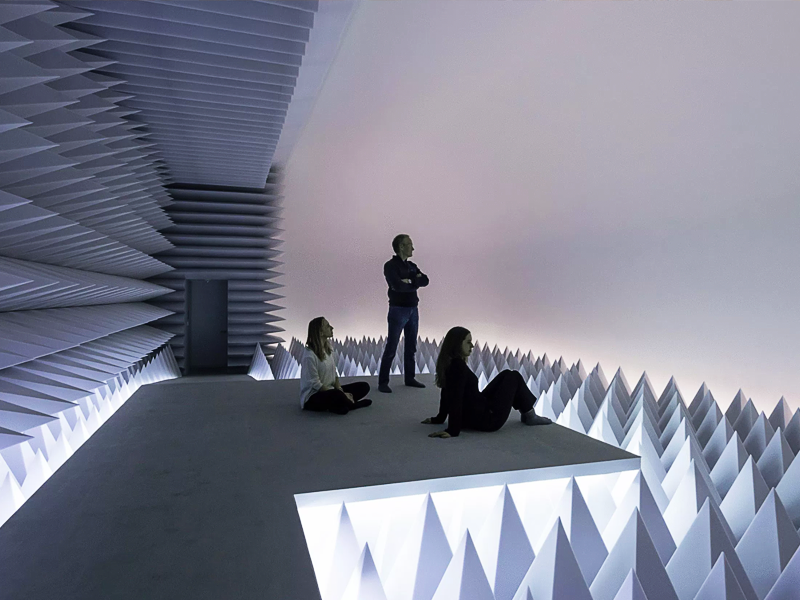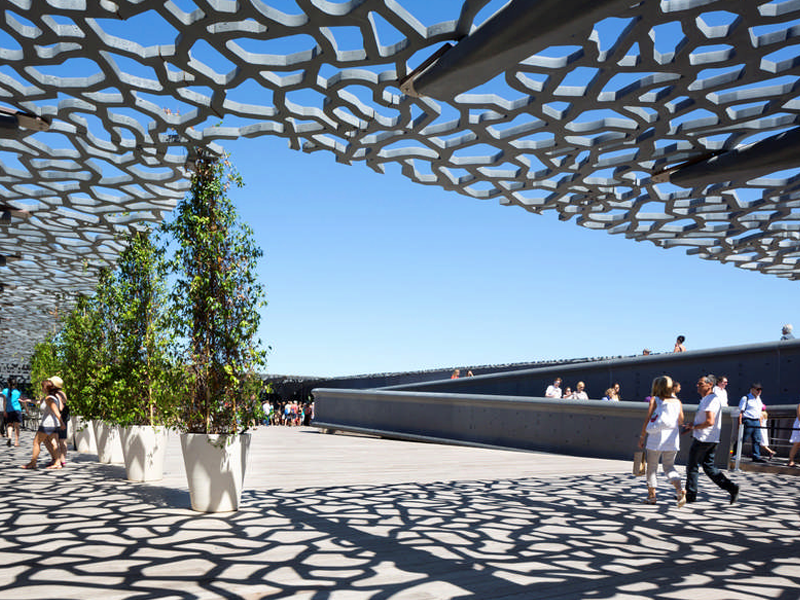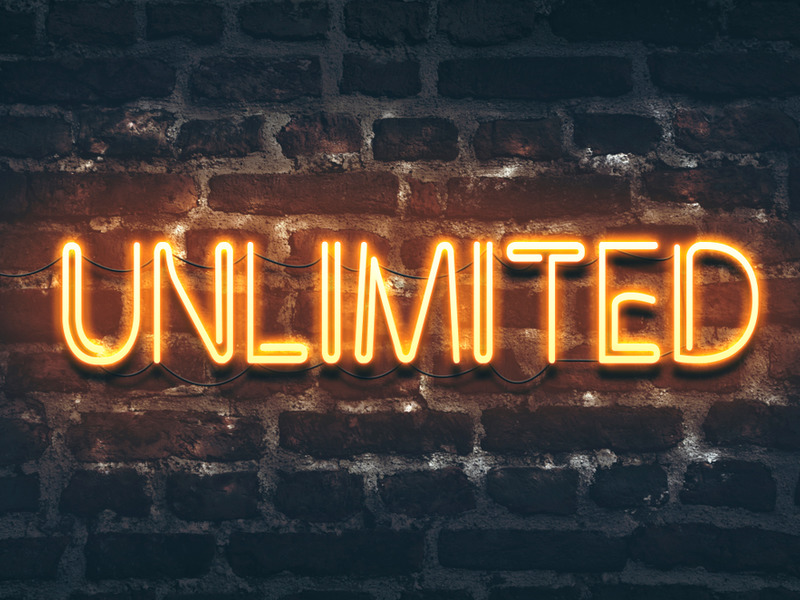
Maya Jaggi: «Art is an important way of seeing yourself in someone else’s shoes»
Maya, yours is an example of a successful career in cultural journalism. How did you feel you’re interested in culture and realise it can become your profession?
Like many people, the arts (and literature in particular) were always an interest of mine, a passion. I grew up reading novels, and enjoying arts and music. But it was a parallel interest. What I studied was Politics, Philosophy and Economics at Oxford, then I did a Masters in International Relations at the London School of Economics. So, I was on this twin track of always reading and following the arts in my spare time. My first job was as a researcher on a global current affairs journal in the centre of London. I was the research officer, then promoted to an editor, but I always thought there was something missing. I thought: «This is politics and economics. Where is the culture?». So, in my twenties, I started a section on literature. It was about 60 pages, every quarter. As the Literary Editor, I got to know writers. I started going to events in London and travelling. My contributors included Ben Okri - who later won the Booker Prize - and Mario Vargas Llosa, before his Nobel Prize.
The ‘magic moment’ was that the journal folded, and I was made redundant. So, I started freelancing, writing for national newspapers and magazines, including the Times Literary Supplement and the Guardian. It was the early ‘90s, when there was more money in newspapers. Since then, newspapers have been undergoing a perfect storm of a financial crisis, and lack of advertising, at the same time as new technologies have made everything available on the Internet.
Sometimes you don’t know that there are career options. International cultural journalism was not an obvious career in the late 1980s and ’90s because it was not well-covered in the British press. It just happened that I lost my job, and that was what I wanted to do. And then it built from that. But I spent eight years on the Guardian staff, working as an editor on the international news desk, including as a commissioning editor of Guardian Europe. It was night work. You worked in the evenings, until 1 a.m. sometimes. I was subsidizing what I wanted to do with something I had to do for money, but that was also very good discipline. Fast, ruthless editing is good experience for anyone who wants to write. And working in a news room, understanding news agendas, is invaluable.
In the meantime, I was using my spare time to write about culture - mainly for the Guardian and also for other newspapers and magazines in London - and to travel. My writing was winning prizes, so in 2000 the Guardian offered me a contract to write long-form profiles and book reviews for Saturday Review, and features for Weekend magazine. I decided to come off the staff because I really wanted to do that. Many people thought I was mad because I was quitting a job to go freelance. But the Guardian contract lasted for 10 years. In that period I was shortlisted for the Orwell Prize, and later awarded an honorary doctorate by the Open University - the UK’s largest higher education institution - for ‘extending the map of international writing’.
You wrote a lot of writers’ profiles, interviews and reviews, in particular from the countries which are still fighting for their place on the map of international literature. What was your goal: to give a voice to these writers, to tell your readers more about this literature?
I knew these writers existed and that their work should be better known. And although I never really defined my interests (I always say I am interested in everything cultural), I think that if you can bring something new, it’s better for you as well as for your readers. When I started, there were very few journalists in Britain writing about culture globally. The main focus was on transatlantic English-language arts and books.
In terms of freelancing, it’s generally good to have something you make your own. So, if you have some specialization and you make yourself ‘the expert’, that gives you an advantage. It also gives you satisfaction when you can see you are making a difference. Some people wouldn’t have been profiled in The Guardian if I hadn’t suggested them, and I could see the difference it made to their careers. There were writers who won prizes where the profile was quoted in the citation, or had TV documentaries made about them. If you are trying to contribute to changing the culture, in a way, then it’s encouraging to see the knock-on effect your work can have, including on journalists in other media, and how momentum can build.
You travel a lot, visited five continents. Which countries (and their cultures) you’ve visited had made the greatest impression on you?
I can give two examples from recent things I’ve been doing.
One is Georgia which I visited for the first time in 2014. I was invited there with publishers because Georgia is country of honour in 2018 at the Frankfurt Book Fair - the most important book fair in the world. It’s a huge opportunity for them, and an example of a country putting money into a cultural project that will raise its profile tremendously. It’s not only going to result in more Georgian books being translated and published around the world, but it is also a way for Georgia to become more visible internationally at the same time as a tourist drive to bring more visitors to the country.
I was fascinated by Georgia. Everyone knows it as a post-Soviet country, but outsiders don’t necessarily know the influences before the Russian - connections with ancient Greek, Ottoman and Persian cultures.
So on my first visit I had the idea of bringing Georgian writers to London for a ‘cultural feast’. The result two years later, in April 2016, was ‘Where Europe Meets Asia: Georgia25’, the UK’s first festival of contemporary Georgian writers and film, held during the week that marked 25 years since the restoration of Georgia’s independence in 1991. As Artistic Director, I made partnerships in Tbilisi and London, programmed the talks, and used my knowledge of journalism to shape media strategy. I invited Boris Akunin (Grigory Chkhartishvili), the bestselling Georgia-born Russian novelist, and put some of Georgia’s best writers, including Dato Turashvili, Aka Morchiladze and Lasha Bugadze, in dialogue with UK writers and critics. Besides giving me a reason to write about Georgian literature and film in the Guardian and Financial Times, ‘Georgia25’ led to Georgian writers being interviewed on BBC flagship programmes such as Radio 4’s ‘Today’, where they were heard by millions. It’s an example of what can be achieved with tailored strategy and know-how, and how culture can help a small country like Georgia ‘punch above its weight’. When the Georgian Prime Minister visited London last year, he mentioned two recent highlights in Anglo-Georgian relations: military co-operation and ‘Georgia25’. I was glad the festival's success made him see culture as an asset.
The second example is Colombia. I was invited there in 2006 for the first Hay Festival in Cartagena. Hay is a global literary festival that started in Wales and now has branches around the world. I went when Gabriel García Márquez was there, then I kept going back. It was just as the civil war was beginning to be contained, so you could travel around the country, which opened everything up. The Colombians started inviting people, saying, «We are not so dangerous now, we want people to come and see what else we can do». Post-conflict can be a very interesting and creative period for culture. I wrote many articles on how writers, artists, filmmakers and musicians were responding to the end of decades of civil war.
In your opinion, what is culture in today’s world and what is its key functions? And how culture can interact with other areas of life to provide solutions for some challenges different societies are faced with.
As Raymond Williams, the British philosopher, said, ‘culture’, along with ‘nature’, is one of the two or three most difficult words to define in the English language.
The understanding of culture has changed from simply being concerned with ‘high arts’ and literature to thinking about culture as habit or custom, or even a whole way of life. But there are other interesting aspects. For example, culture and power: people understand much better that by representing people of another culture, you can exercise power over them. It’s something you can also combat by using culture to resist external power.
It’s not just countries that have cultures, but institutions and corporations. You can talk about Nokia and Apple culture - things you need to change if you want to change those organisations. As with countries having political transitions, the underlying culture can be one of the slowest things to change. The arts are one means by which you can start to make deeper cultural changes - to change values, people’s habits and thoughts.
As journalists, we are writing about a lot of extremely important things, not always directly connected with culture. It can be wars, political issues, refugee crises, social issues. In your opinion, can we really make a serious impact on solving those problems?
I think the role of culture is not necessarily to solve things directly; art is partly a mirror, a way for us to reflect and discuss things. Let’s take a concrete example: I visited an exhibition in Turkey a couple of years ago about countries that have apologised officially for a historical wrong they did to another people. It didn’t mention Armenia at all, but it was a way to get people to think about the genocide, using other examples, from the Australian Aboriginals to Northern Ireland. That kind of exhibition creates debate.
Another example is the work around music and what role it can play in conflicts. There are orchestras coming together made up of players from opposing sides. There is a lot of disagreement about this. But the fundamental point about music is that you have to listen; you can’t be a musician without listening. And you don’t just listen to each other playing; you listen to each other talking.
By encouraging people to become more open, and more used to working with those they might regard as enemies, these projects can have an effect. Now they can’t solve the problems that politicians must deal with; they can’t replace peace talks. But on one level there's a value for the individual musicians who play with each other and that’s how they learn and grow. There's also a symbolic value: they show the possibility of people working together, even when others are saying «There is so much hatred, it’s going to take generations to solve». When you look at an orchestra playing together, that's not solving a political problem, but it is a beacon, a light. It can reveal possibilities beyond the conflict.
Theatre is a third example. I went to the Basque country, a very polarized society where they have very recently suffered extreme violence, and wrote for the Financial Times about San Sebastián as European Capital of Culture 2016. They had a theatre project for audiences who included victims of the military and victims of separatist groups. To have a place where people see themselves as a society reflected on stage, and have the chance to talk about that with others, to think about what it means and why they need to change for the sake of their children and the future, that can have a very concrete effect on individuals. It’s one of the roles of art.
One other thing I would say about art - particularly literature, theatre, film - is that it’s a very important way of seeing yourself in someone else’s shoes. That means understanding what it’s like to be someone else, or to think like someone else. It’s a necessary step, and that’s basically what a novel is: a writer putting him or herself in the shoes of the characters - their minds and lives. Then you as a reader have to do that too. It’s very active, not passive - an imaginative act.
Could you please give some practical professional advice how to choose topics, to raise important questions, to involve the audience?
Audience-building is very important. Artists and writers need an audience, and journalists and critics are very important for this. But art is important for the audience as well. What you are trying to do is to give that audience access to knowledge and experience that can enrich their lives. Not just solve problems but simply enrich the way they live and develop as people.
Part of the skill of journalism is always thinking about your audience and how to make what you’re interested in, and what you think they should know about, relevant to them. You have to show how culture touches their lives, how whatever art you are talking about is relevant to them and topical. A lot of cultural journalism is telling stories. Finding the specific way to do that in each case is how you hook your audience. You always have to fight for your audience; you can’t take them for granted.
What are the other skills and competencies cultural journalists need mostly?
They need all the skills that other journalists use - especially reporting and interviewing. But they have an additional skill – criticism, meaning critical appreciation. It’s not simply giving an opinion.
A review, which is the most obvious form of criticism, is not just an opinion or making a judgement. It’s making an argument with analysis and context. You have to bring in evidence to persuade people of your way of seeing things. But also - and this is very important - you have to describe. There is a lot of description of art in cultural journalism, which is very difficult. If you are describing prose, poetry or music, you have to hone language and use all your senses to convey to the reader the experience of that art. When you look at the object you’re reviewing, you’re also looking into yourself at this experience you’re having as a result of your interaction with art. I think it’s one of the hardest skills journalists could have.
Could you bring some example of the most important texts or projects in your career which had a deep personal impact on you?
One recent project that comes to mind is an art exhibition on refugees that I wrote about for the Financial Times, because that is such a huge issue at the moment and will be for years. Attitudes to migration influence what’s happening politically in Europe in terms of right-wing and xenophobic movements - whether fringe groups or Brexit. But the issue is important on a human level. There was a small art exhibition on the Greek island of Samos, near the Turkish mainland. I spoke to artists, local people, the mayor, and visited a refugee camp and a graveyard for drowned children. It became a way to reflect on a very complex and divisive issue. But what struck me was the generosity of so many Greeks in hard times, and the importance of history: Many islanders were descended from Greek refugees from Asia Minor in the 1920s, and they became refugees to Turkey during Nazi occupation.
People who think migrants should be allowed in can feel morally superior to people who want to exclude them because they fear they’ll take their jobs and be a strain on services. Most of today’s migrants are coming from conflict areas. But at the same time, I met Greek islanders whose livelihoods are suffering because tourist numbers have fallen. Some people blame the tourists, and say «Oh, they are afraid of refugees!». It makes you think about the larger political situation, and the need to resolve the crisis on an international level, rather than judging or blaming the people caught up in it.
That’s an aspect that was not necessarily in the art exhibition, it was part of the thinking I did around the exhibition as a journalist. The task is not simply art criticism, it’s looking at the wider context of the art, both at what led to its creation and how it affected the viewers. And that context is so important to us as cultural journalists.
AN INTRODUCTION TO CULTURAL JOURNALISM COURSE. ONLINE COURSE BY DR MAYA JAGGI
After taking this course, you will have an idea of what cultural journalism is; what criticism is; how to interview cultural figures; and how to build an audience for culture.




